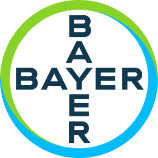Important Safety Information
Do not take KERENDIA if you:
- Are allergic to any of the ingredients in KERENDIA
- Take certain medications called CYP3A4 inhibitors. Ask your healthcare provider if you are not sure if you are taking any of these medications
- Have problems with your adrenal glands
What are the possible side effects of KERENDIA?
KERENDIA may cause serious side effects, including:
- High potassium levels in your blood (hyperkalemia). Your healthcare provider will check your potassium level before and during treatment with KERENDIA
- Worsening of kidney function for patients with heart failure. Your healthcare provider will measure your kidney function before and during treatment with KERENDIA
The most common side effects of KERENDIA include hyperkalemia (high potassium level in your blood), hyperkalemia (potassium level in your blood that is higher than normal), hypotension (blood pressure that is lower than normal), and hyponatremia (sodium level in your blood that is lower than normal). Worsening of kidney function was also included in patients with heart failure.
Before you take KERENDIA, tell your healthcare provider about all your medical conditions, including if you:
- Have high potassium levels in your blood (hyperkalemia) or take medications that may increase potassium levels in your blood
- Have severe liver problems
- Are pregnant or plan to become pregnant, or are breastfeeding or plan to breastfeed. Avoid breastfeeding during treatment with KERENDIA and 1 day after treatment
Tell your healthcare provider about all the prescription and over-the-counter medicines you take, including salt substitutes, vitamins, and herbal or potassium supplements.
- KERENDIA may affect the way other medications work, and other medications may affect how KERENDIA works. Do not start or stop any medicine before you talk with your healthcare provider. Avoid grapefruit or grapefruit juice as it may increase KERENDIA levels in the blood
Please see the full Prescribing Information for KERENDIA.



